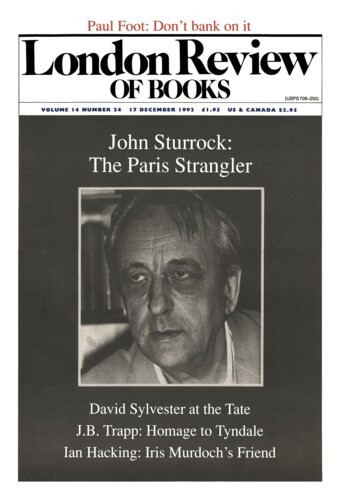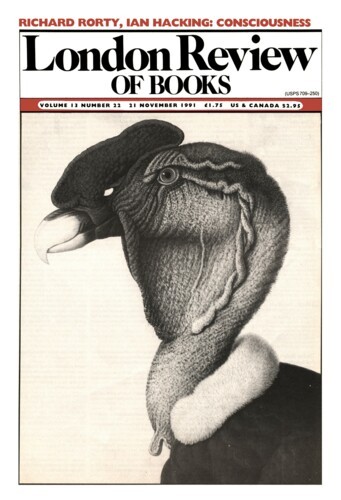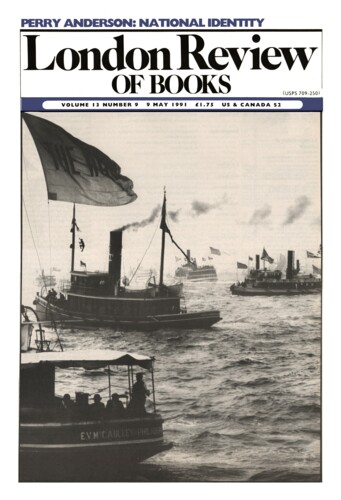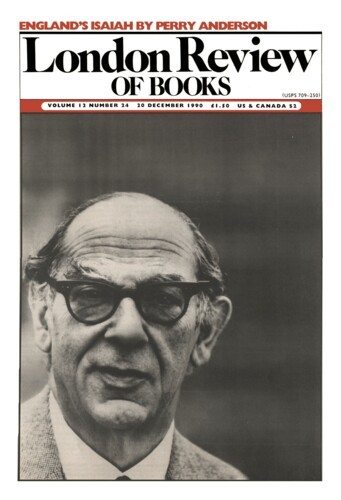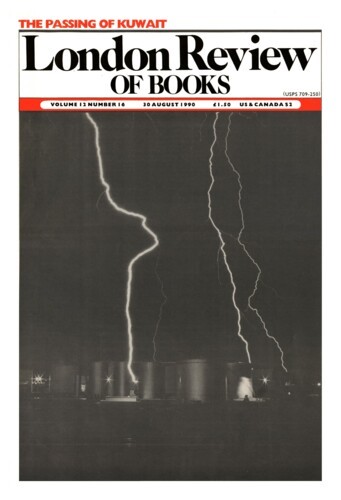It’s just a book
Philip Horne, 17 December 1992
Paul Auster is an amphibious writer whose eclectic methods and influences make one unsure by which end to try and grasp him. His early self-exile to an apprenticeship in Paris as a poet and translator, absorbing the lessons of the ‘high’ aesthetic rigorists – Beckett, Blanchot, Jabès, Celan – was an unexpected preliminary to his return to America and, after several years, his dark, formally self-conscious entry onto the scene of the American novel with The New York Trilogy, an elaborate anti-detective volume full of Hawthorne, Melville and Thoreau. Despite its grand title it had been rejected 17 times before a publisher brought it out in 1985; yet it became, at the chic end of the market, a ‘best seller’, and established Auster as a figure to be puffed or sniped at, as some blankly indulgent and huffily impatient receptions of Leviathan have again shown.’
